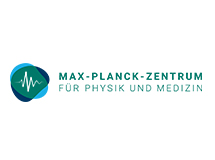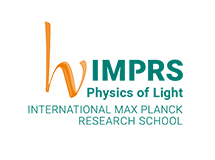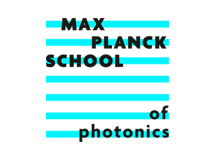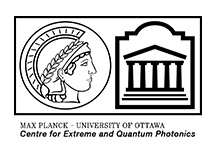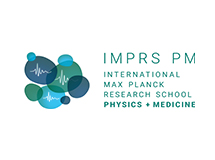Quantum technology simply explained: Gerd Leuchs gives the Leopoldina lecture
In front of over 200 science enthusiasts – including the Prime Minister of the State of Saxony-Anhalt and physicist Dr. Reiner Erich Haseloff – Prof. Gerd Leuchs spoke recently at the Leopoldina Academy. Held on the occasion of the presentation of certificates to the newly elected Class-I members of the Leopoldina Academy, the lecture also marked Leuchs’ handing over the chairmanship of the Physics Section to Prof. Eberhard Bodenschatz. The emeritus director of the Max Planck Institute for the Science of Light explained how the computing power of quantum computers is achieved, their potential – not least for pharmaceuticals. He also touched upon the advantages of quantum sensors and of quantum communication.
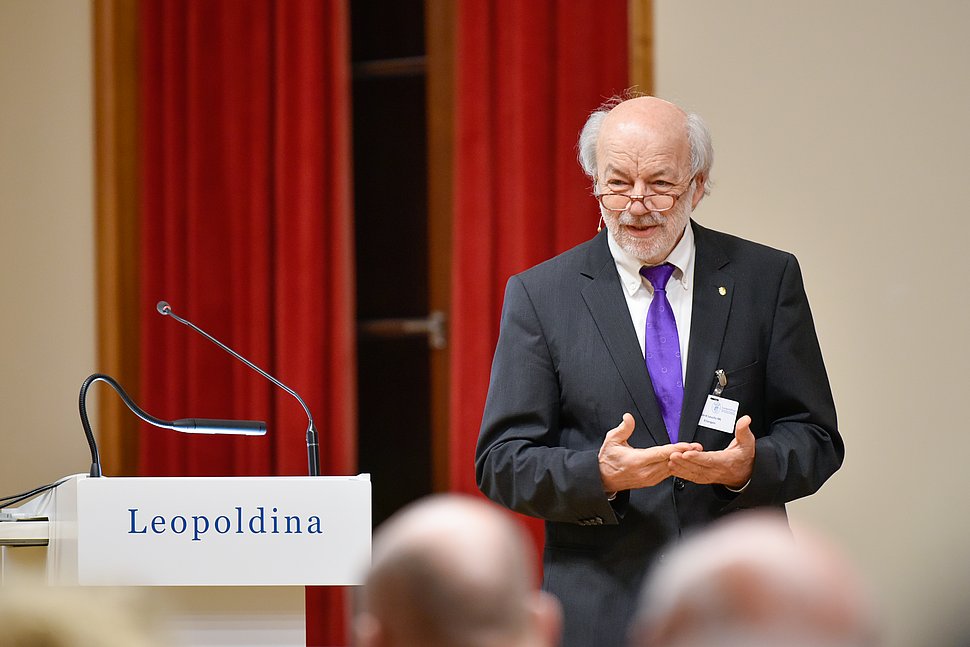
Professor Gerd Leuchs (@Markus Scholz for Leopoldina)
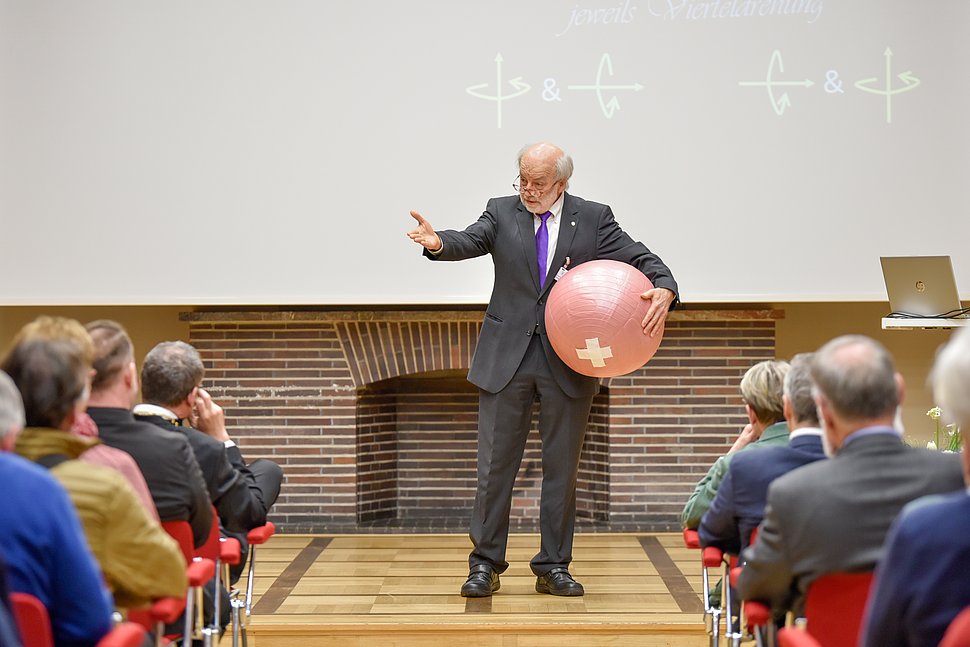
Professor Gerd Leuchs (@Markus Scholz for Leopoldina)
The Leopoldina, the oldest continuously existing Academy of Sciences, supports the German federal government on important future social issues, regardless of independent economic or political interests. Another central task of the Academy is to inform politicians and the public about scientific issues.
Quantum science increasingly influences the development of new technologies and, in the long term, our everyday lives. For example, the computing power of quantum computers will offer completely new opportunities. In his lecture, Leuchs, a leading scientist in the field of quantum technology, impressively explained the underlying mathematical and physical principles as well as the differences to everyday mathematics. While classical bits represent numbers that all lie on the one-dimensional number line, quantum bits, the usual unit of calculation in quantum information science, span a higher-dimensional space through rotation and superposition and require a complex mathematical approach. "For example, a 1000-dimensional space is not easy for humans to imagine. Scientists must be prepared to go beyond their conventional scientific ideas to advance their field. This is also true for quantum science," says Leuchs. The special thing about quantum states is that a superposition state can contain several seemingly contradictory states, which Leuchs tried to illustrate to the audience using everyday optical phenomena. These states are intertwined and strongly correlated. During the measurement, a projection occurs on one of the superimposed states and the information about the others is irrevocably lost. This is a property that quantum technology exploits e. g. for eavesdropping-proof communication.
Gerd Leuchs went on to explain the advantage of quantum computers. Instead of processing input values serially, i.e. one after the other, quantum computers can process many input values in parallel, which – if certain conditions are fulfilled – makes them extremely powerful and fast. Leuchs: "Future applications of a quantum computer exist for example in the pharmaceutical industry for calculating complex molecules, while quantum sensors will also play a role in medical technology.
About Prof. Gerd Leuchs
Born on 14 June 1950, Leuchs is Senior Professor at the Department of Physics of the University of Erlangen-Nuremberg. Since 2009, he is Scientific Member of the Max Planck Society and was Director at the Max Planck Institute for the Science of Light up to 2019. Leuchs is a member of the German Academy of Sciences Leopoldina, the German Physical Society, the European Physical Society, the German Society for Applied Optics, the scientific society Optica (formerly Optical Society of America), of which he became President in 2024, the Institute of Physics (London), the Russian Academy of Sciences, the Chinese Optical Society and the American Association for the Advancement of Science. More than 500 publications in scientific journals and editor of three books. In 2005 he was awarded the Quantum Electronics and Optics Prize of the European Physical Society.
In a current lighthouse project "QuKomIn" for testing a tap-proof quantum communication infrastructure, a real test infrastructure for quantum communication is to be set up in the form of a hybrid fibre-optic network with satellite connection and application laboratories in the rooms. The research project, led by the Max Planck Institute for the Science of Light in Erlangen, is carried out in close collaboration with neighbouring initiatives in Saxony and Thuringia and the BMBF project "QuNET". The difference to conventional data encryption methods is that security is based on a physical law of nature and not on mathematical assumptions. Through quantum key distribution, information based on individual quantum states of photons can be transmitted securely.
About the German National Academy of Sciences Leopoldina
As the National Academy of Sciences, Leopoldina provides independent, science-based policy advice on socially relevant issues. To this end, the Academy prepares interdisciplinary statements based on scientific findings. These publications present options for action, and it is the task of democratically legitimised politics to decide on them. The experts who write the statements work on a voluntary basis and without any restriction regarding the outcome. Leopoldina represents German science in international bodies, including the scientific consultations of the annual G7 and G20 summits. It has around 1,700 members from more than 30 countries and brings together expertise from almost all fields of research. It was founded in 1652 and became Germany's National Academy of Sciences in 2008. As an independent academy of sciences, Leopoldina is committed to the common good.
Contact
Edda Fischer
Head of Communication and Marketing
Phone: +49 (0)9131 7133 805
MPLpresse@mpl.mpg.de

